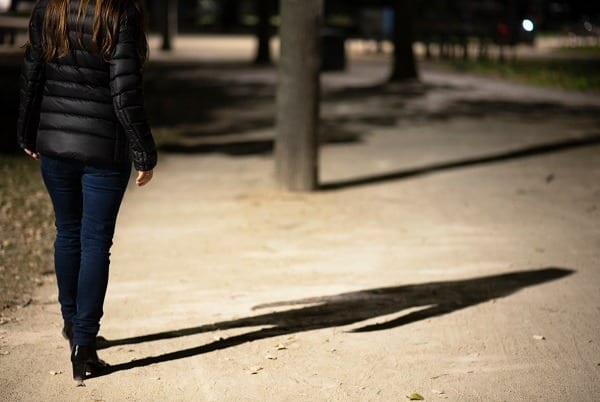Plan International’s latest report, Unsafe on the Streets, interviewed women and girls across five cities – Sydney, Delhi, Kampala, Madrid and Lima – about their experiences of harassment in public places.
The report confirms the pervasive nature and extreme level of harassment experienced by women, crossing state borders and cultural and religious intersections.
Across all five cities, women and girls are being targeted by men, who use threatening and aggressive tactics like catcalling and groping to intimidate, embarrass and demean them.
Starting in 2017, Plan International launched maps in the five cities where women could place ‘bad’ pins at locations where they experienced street harassment, or ‘good’ pins in areas where they felt safe, and provide details of their experiences.
The results show that women feel unsafe more than they feel safe on the streets.
Of the 500 women aged between 18 – 25 interviewed in Sydney, one in four respondents say they are harassed at least once a month, and one in three say they are experiencing mental health issues ‘as a direct result’.
90 percent of Sydney women ‘sometimes or always’ feel unsafe at night time.
“The barrage of street harassment I experience simply just while getting from one place to another leaves me feeling defiled, then powerless and then numb. It should not be an everyday occurrence that I call my parents when I’m walking home at night, with the background thought that if I get raped, at least someone will know to call the police,” says Alice, a 21-year old respondent.
Disturbingly, Unsafe in the Streets points to ‘social acceptance’ and ‘male bonding’ as the underlying reason men engage in harassing behaviour.
The ‘Likelihood to Sexually Harass’ scale, developed in 1987, finds that men with a ‘lack of empathy, a belief in traditional gender sex roles and a tendency toward dominance or authoritarianism’ are most likely to sexually harass women.
Based on the findings of Plan International’s report, such men are also the likely instigators of street harassment.
In an experiment for the SBS documentary Is Australia Sexist?, one woman was catcalled eight times in eight minutes by men in passing cars near a Perth beach, where she was pretending to take a selfie.
In the footage, one man yells, ‘get your tits out for the boys!’ as he drives by.
“It’s never when females are in the car. They’re never doing it in front of their sisters and mothers,” the woman observes.
A man then performed the same experiment, receiving no harassment from passers-by.
When women are harassed, bystanders rarely intervene.
And our lack of response sets the cultural standard.
The normalisation of this kind of behaviour means that when women do report, they aren’t taken seriously.
Women, consequently, are forced to limit their movements and consider their personal safety in everything they do, because they can’t depend on authorities to keep them safe.
Parents begging their daughters to be hyper-vigilant on the streets is one thing, but when a police superintendent tells women to ‘take responsibility for their own safety’ following the senseless of murder of Eurydice Dixon, it sends a dangerous message.
Women do not bear the onus for men’s inappropriate and violent behaviour towards them.
Women are not culpable for experiencing harassment or violence from a man – regardless of her relationship to the perpetrator, or any prior incidents that have occurred.
Eurydice Dixon was walking home from a train station in Melbourne when she was attacked, raped and murdered by a man who stalked her in the shadows for five kilometres.
He purposefully kept her in his line of sight but followed from a distance to remain undetected.
His attack was calculated and cold-blooded.
How could she possibly have protected herself from a stranger hiding in the dark?
Aiia Maasarwe was an Arab-Israeli exchange student who travelled to Melbourne to study at La Trobe University.
She was on the phone to her sister when she was fatally attacked by a man near a tram stop, less than a kilometre away from her house.
According to police, the details of her injuries were ‘horrific’.
Women should not have to change their behaviour to avoid street harassment, even when a senior law enforcement officer publicly victims shames us into thinking we could do more to protect our safety.
We need good men to call out perpetrators for their toxic masculinity and spark cultural change.
Ultimately, however, it is up to the authorities to punish men who perpetrate acts of harassment and violence towards women, and to keep women safe on the streets.


